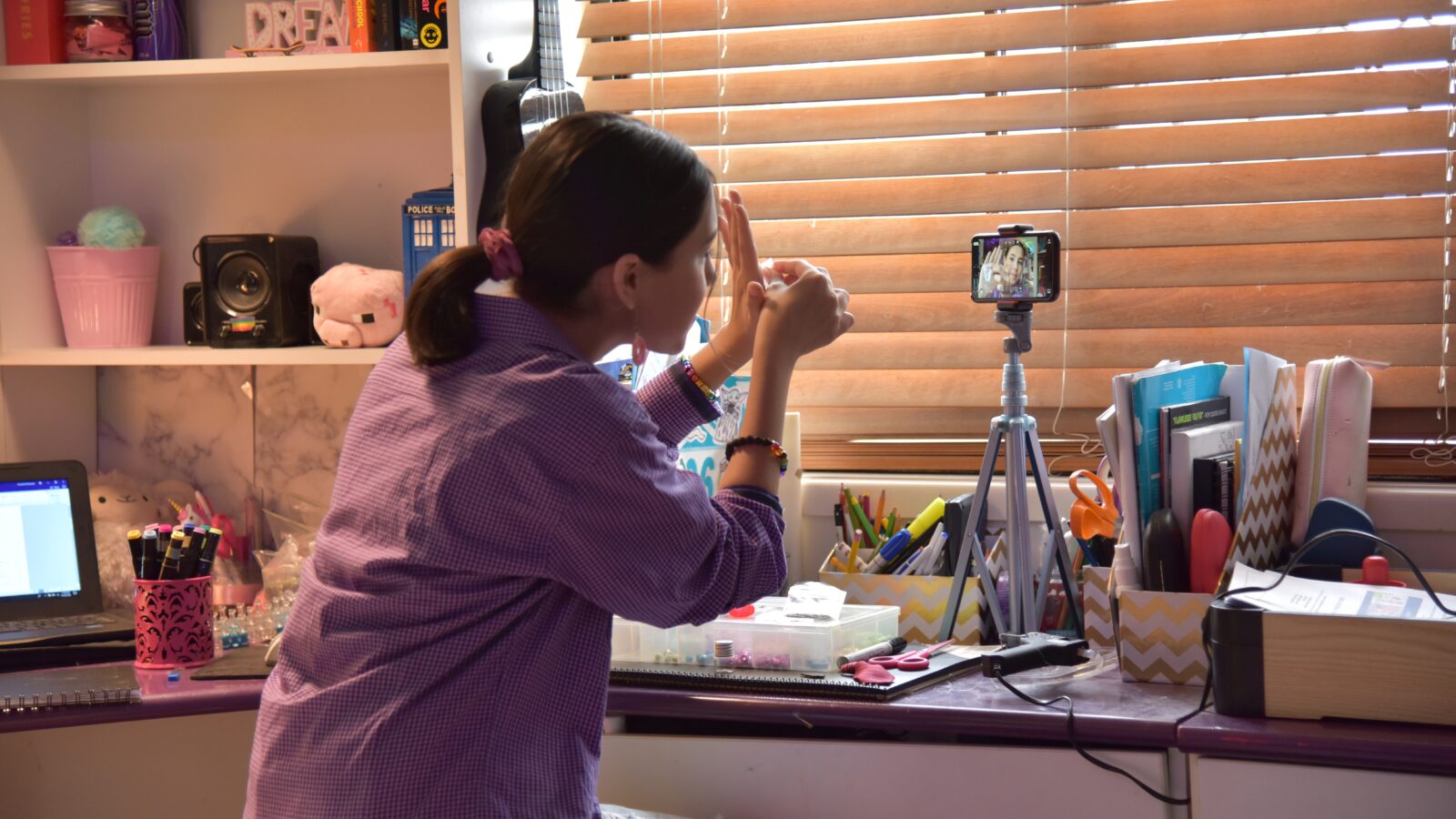Key Points
- Children are engaged at school when they enjoy their learning, have positive relationships with their teachers and other children, and feel like they belong to their school.
- When a child is engaged in class, they learn more.
- You can help your child engage at school by being positive about school.
- Share information about your child with their teachers so they can better understand your child and cater for their needs.
- Every day spent at school can help your child engage better at school.
Starting school is a big milestone in your child’s life. As a parent, it can be a time of mixed feelings. You can feel happy and excited to see your child embarking on a new stage in their life and possibly also a bit anxious about how they will handle things. You can help your child make the most of their time at primary school, by supporting them to be as engaged as possible at school. We know that when a child is engaged in class, they learn more. Here are eight tips you can use to help your child engage at primary school.
1. Be positive about school
Start early. Talk to your child about starting school and familiarise them with the school environment and routine. Show them where the school is and talk about how you will get there each school day. Discuss what they think about starting school and encourage them to ask questions about it. Use the name of their new teacher to build connection. Before school goes back, practise routines around bed time and getting up in the morning and let your child get used to doing things like putting on their school shoes, opening their lunchbox, and carrying their own school bag. And remember: the way you talk about school can influence the way your child views school and learning. Talk to your child about why school is important and why learning is fun.
2. Help the school get to know your child
You know your child better than anyone else so when you share insights about your child with their teacher, you are equipping their teacher to better understand and cater for your child’s learning, emotional and social needs.
- Share insights about your child with their teacher so they can understand your child better.
- Stay in touch with the teacher and tell them about any big changes in your child’s life.
- Let their teacher know if you observe any changes in your child’s behaviour such as an unwillingness to go to school, trouble sleeping at night, or your child becoming socially withdrawn.
3. Nurture a sense of belonging at school
A sense of belonging can go a long way in helping children to feel engaged at school. Research has found that children who do not feel a sense of belonging at school can be at risk of disengaging from school. There are many ways you can help your child develop a sense of belonging at school including:
- attending school transition and orientation programs
- going into the school so your child feels comfortable and confident about being there
- getting to know other parents and organising playdates for your child
- talking positively about having friends and encouraging your child to nurture friendships
- involving your child in extracurricular activities at school
- attending school events such as significant cultural events, fetes, working bees, discos and class concerts with your child.
4. Promote the value of learning
As a parent, you are your child’s first educator and can make a big difference to how your child feels about going to school and learning new things. Studies have shown that early engagement in learning is an important protector against later disengagement from school. By studying students as young as eight, researchers¹ were able to predict future early school leavers with 70 per cent accuracy. Children watch and copy what parents do and say. So be aware of how you talk about learning and school. Be aware of what learning behaviours you are modelling. For example, when was the last time you learned something new? Did you talk about it? Promote the many benefits of an education and the joy that can be gained from learning. Help your child explore what is interesting to them and let them try lots of different activities.
5. Work with your child’s school
Be supportive of your child’s teachers and think of them as your partners in shaping your child’s view of school and learning. Schools have trained teams who can help your child if they need extra support, including guidance officers who help children with their learning, emotional and social needs at school. It’s worth remembering that young children sometimes disengage because they don’t know how to do something they think they should be able to do and may not know they should ask for help. For example, a child might have a sore wrist and avoid writing when what they need is support from an occupational therapist. In this situation, a child’s problem could go unnoticed and they might misbehave to get out of writing tasks. So if your child mentions anything, however small, that you think might affect their ability to engage at school, it’s worth discussing with their teacher. And if your child shows signs of disengaging at school, then let the school know. Schools have programs and services and expert teams to help children who need extra support.
6. Remember every day counts at school
Every day spent at school can help your child engage at school and make the most of their education. Help your child establish good habits early, right from Prep, as this will help them connect with their school and reduce the likelihood that they will disengage from school. Research shows that in Queensland, higher student attendance is associated, on average, with higher student achievement. When your child goes to school regularly:
- they learn better
- they make friends
- they are happier
- they have a brighter future.
7. Establish routines
Establishing routines can help your child engage better at school and build good habits that will stay with them in their teenage years and beyond. Routines that can help your child be ready to learn and enjoy school include:
- having a set time to go to bed at night
- having a set time to get up in the morning
- getting their school bag and uniform ready the night before
- eating breakfast before going to school
- having homework time as part of the evening or weekly routine
- as your child gets older, having a plan to manage use of social media and time spent on screens.
8. Encourage your child to talk about school
When you’re in touch with your child’s feelings about school, you’re more likely to see problems before they get too big. That way, you can let the school know early about any concerns you have so you can work together to support your child. Teachers want to know what’s going on with your child. If you can regularly share how you think your child is going, what’s important to them, and any worries you have about their friendships, it can help their teacher to better connect with them and find the best ways to engage them in their learning. Try asking your child simple, positive and open-ended questions to get your child talking, such as:
- What was the best part of your day at school?
- What was fun at school today?
- Who did you play with at breaks?
- What made you laugh today?
Think about the best time to talk to your child about their day. Many children find it easier to talk about things when something else is going on, like when you are driving in the car together or while you are making dinner.
And if your child has a disability or individual learning needs
You may already know your child has additional learning needs or could be concerned that they might. It’s during the primary school years that such issues can start to emerge and sometimes it’s not until towards the end of primary school that they are diagnosed. So it’s worth acting early if you are worried about anything or think your child is not where they should be developmentally for their age. Talk to the school and discuss your concerns with your doctor. Children develop at different rates and professionals are the best people to advise you on whether there is a need for follow-up testing or additional support. In the meantime, alerting your child’s school to your fears can help the school focus on any areas for concern, organise support staff to work with your child, and/or provide additional diagnostic information. And for some of you, the Autism Hub or the Reading and Writing Centre could be a useful place to gather information to help you support your child’s engagement at school.
References
-
- Barrington, L & Hendricks, B, Differentiating characteristics of high school graduates, dropouts, and nongraduates (2015)
Last Updated: 22 February 2024





